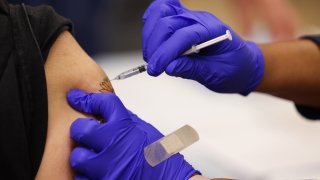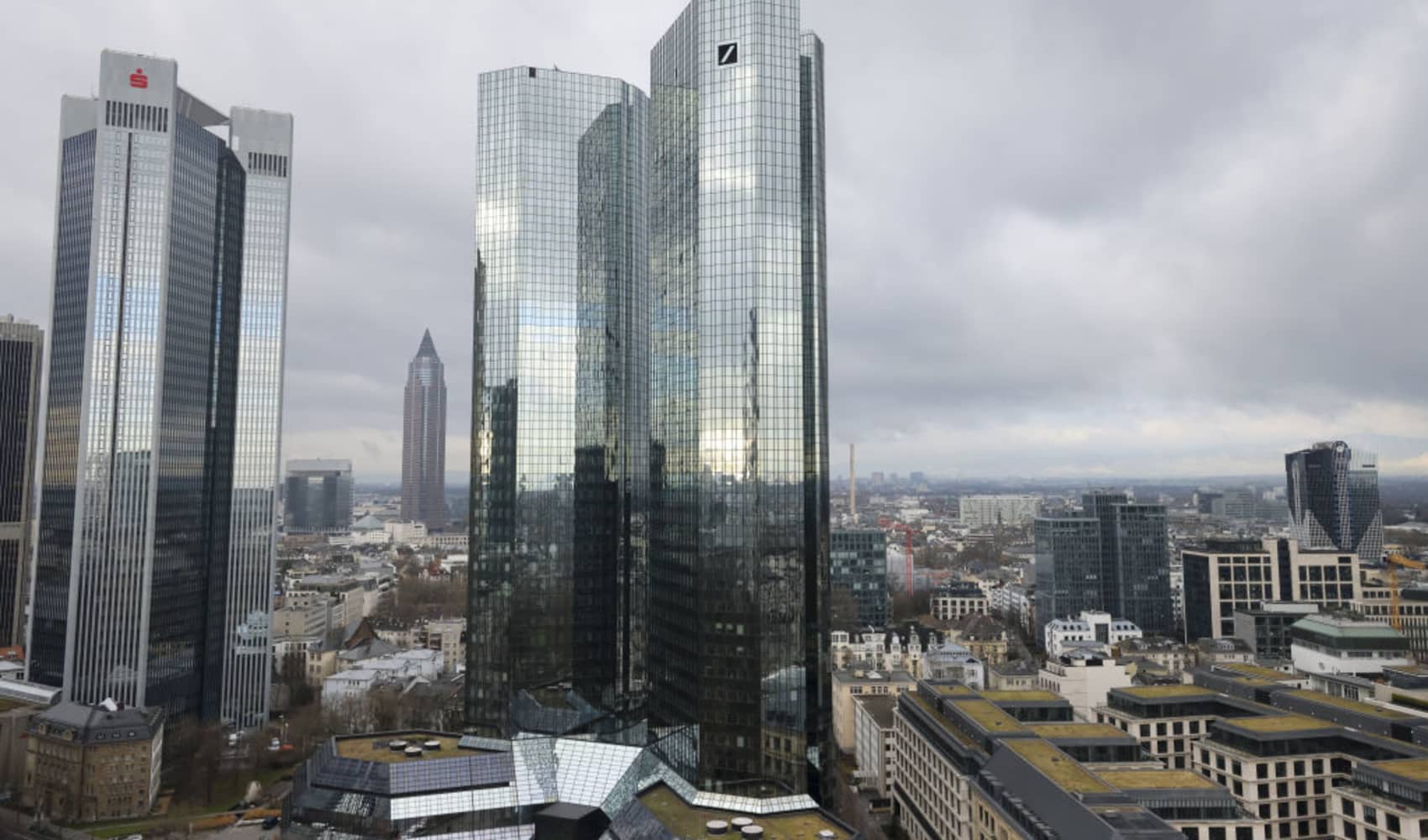
Pandemic restrictions may be easing across the country, amid declining Covid cases — but experts say the virus is going to stick around for a long time.
That likely means you'll need another Covid booster shot sometime in the future. The big question is: When?
There have been mixed reports on the matter. The U.S. Food and Drug Administration is reviewing early data that could point to the authorization of a new booster dose this coming fall — potentially as the first in a series of annual Covid vaccinations, much like flu shots — according to the Wall Street Journal.
Meanwhile, some recent studies suggest that most people who are already boosted may not need another dose for months, or even years. In the U.S., that's approximately 44% of all fully vaccinated people, according to the Centers for Disease Control and Prevention.
Get Tri-state area news and weather forecasts to your inbox. Sign up for NBC New York newsletters.
Taken together, it's easy to be confused about the timeline. That's why some medical experts are preaching patience, saying it's simply too soon to know yet.
Here's why, and what data they're waiting on:
The first booster shot is still working
Money Report
Right now, the country's vaccines and boosters from Johnson & Johnson, Pfizer-BioNTech and Moderna — which were designed to fight the original SARS-CoV-2 strain — are doing a "great job" protecting against severe disease, says Ali Ellebedy, an immunologist and associate professor at Washington University School of Medicine in St. Louis.
Their protection holds up even against variants like omicron and delta, he says.
That's largely due to the T cells that vaccines help your body generate, says Dr. Dan Barouch, director of the Center for Virology and Vaccine Research at Boston-based Beth Israel Deaconess Medical Center. T cells are specific white blood cells that activate once you catch a viral infection, helping target and destroy infected cells to lessen the severity of your physical symptoms.
Barouch, who recently led a study about T cells' effect on omicron, says T cells are likely just as important in protecting people against severe disease as antibodies — and they last much longer.
It's unclear exactly how long Covid-related T cells will last, but researchers say people whose immune systems developed T cells to fight the SARS coronavirus in the early 2000s still had those T cells in their blood at least 17 years later.
"Memory responses can last for ages," Wendy Burgers, an immunologist at the University of Cape Town who led a different recent T cell study, told the New York Times last month.
The value of a second booster shot
In a clinical trial released on January 17, Israel's Sheba Medical Center found that while a second booster shot does marginally increase antibody levels, it's not enough to make a significant dent against omicron — suggesting that a new shot would have limited short-term benefits.
Instead, Ellebedy says, the need for an additional shot will depend on a few key factors in the coming months, including how well the current boosters hold up for high-risk populations over time, and whether any dangerous Covid variants emerge on omicron's heels.
"At this stage, it is hard to tell for sure how different the next variant of concern would be from the currently circulating one, the omicron," he says.
Barouch says an "annual booster" makes more sense than boosting every three to six months, while shorter intervals are likely for the elderly and immunocompromised.
"Only a fraction of people in the U.S. eligible for a booster have chosen to get the booster," he says. "It is likely that additional frequent booster calls would lead to even lower acceptance rates."
Ellebedy notes that the next booster could potentially be an omicron-specific vaccine, which both Pfizer and Moderna have been working on for several months.
That "could be beneficial in the long run, by engaging new immune cells that the original vaccine did not bring into play," he says. "Immunologically, this would be called 'broadening' of our immune armamentarium [a collection of resources used to combat diseases]. Theoretically, this broadening would be particularly helpful if a new variant of concern that is descendent from omicron emerges."
Many people don't have their first booster yet
New daily Covid cases have dropped dramatically from their record high of more than one million on January 3. As of Wednesday, the seven-day average of daily new cases in the U.S. is down to 57,825, according to Johns Hopkins University data.
As a result, some people are deciding that their booster shot is unnecessary. According to new CDC data, fewer people have been getting boosters in recent weeks: The seven-day average for booster shots was about 149,000 on Feb. 19, down from one million in early December.
But the booster remains crucially important, says Hannah Newman, director of infection prevention at Lenox Hill Hospital in New York City. She urges people who haven't yet gotten boosted to do so, and soon.
"What we know is that the three-dose series is really what is protecting people most effectively right now, even those who got omicron," Newman says. "We don't know what the future holds, and it's certainly better to get that shot and start to have that antibody response sooner rather than later."
Don't miss:






